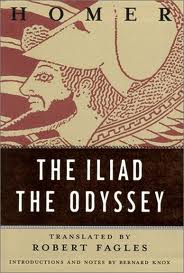

Q: Do you have solid evidence against Grammar-Translation?Ī: Here's a sample.

In short, you will need to rely on yourself. Thus teaching Greek is replaced by teaching about it, and reading it by what used to be the emergency crutch of decoding it. Standardised tests don't test language proficiency, but must be prepared for. Reading a lot requires much more time than most programs allow. Teaching and learning Greek requires a level of spoken fluency. Has been taught for the last 150 years is that teaching or even reading it is beyond many classicists' abilities. (You can learn more about it here and here) A: As with any skill, through a lot of practice - this is called Comprehensible Input.A: Reading the text and understanding it, perhaps after a few attempts, but without recourse to another language, like you presumably understand English.A: In > 90% cases, no - you won’t be able to read Greek.Q: I’m being taught to translate transverbalise using grammar rules and a dictionary.A: Take a look at our resources page, there you'll find all the material needed.Q: I want to learn Greek but I don't know how to go about it or where to start.In so doing, they provide an effective means of bringing together the full range of knowledge about a specific text as built up over the ages. Commentaries play a vital role in classical scholarship, providing word-for-word and line-by-line clarifications and explanations of these ancient texts.

In her commentary, De Jong elucidates various aspects of the text, ranging from details like unusual word forms to broad themes such as the narrative structure of the text. Though the Iliad does not describe the event itself, it does contain allusions, the most important being in Book 22. Having long chosen to keep to the sidelines, Achilles’ slaying of Hector seals not only his own fate but that of all Troy. The 22nd book (of 24) contains one of the dramatic high points of the Iliad: the duel between Hector, leader of the Trojans, and the Greek champion Achilles. De Jong is the first Dutch classicist to be asked to author one of the series titles. Today, the volumes are a standby for all scholars, whether students or professionals, studying Classical texts. Launched in the late 1970s, this series of commentaries on the classics now numbers more than 70 titles. The book, entitled Homer – Iliad Book 22, provides a commentary on the 22nd book of Homer’s Iliad. In mid-January, Cambridge University Press will be publishing the latest title in its prestigious Cambridge Greek and Latin Classics series - or ‘Green-Yellows’, as they are known in academic circles (on account of the book jacket colours) - written by University of Amsterdam (UvA) professor of Classical Greek Language and Literature Dr Irene de Jong.


 0 kommentar(er)
0 kommentar(er)
